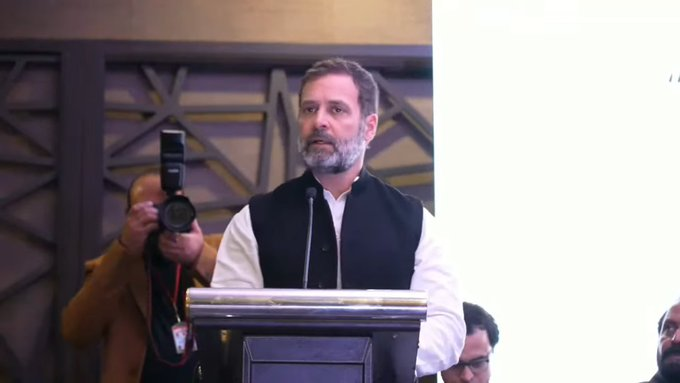Introduction
We are witnessing a historic moment in Indian politics as the Congress party calls for an opposition meeting to discuss the recent sentencing of Rahul Gandhi, one of its most prominent leaders. The decision has sent shockwaves throughout the political landscape, and the ramifications of this event are far-reaching. In this article, we will explore the implications of this sentencing and provide an in-depth analysis of the current political climate in India.
Background
Rahul Gandhi, the former president of the Indian National Congress, has been sentenced to jail in connection with a defamation case. The case was filed by a member of the Bharatiya Janata Party (BJP) who accused Gandhi of making derogatory comments against the party and its leaders. Gandhi has denied the allegations, and the Congress party has called the case a politically motivated attempt to silence dissent.
Opposition Meeting
In response to Gandhi’s sentencing, the Congress party has called for an opposition meeting to discuss the issue. The meeting is set to take place tomorrow, and it is expected that all major opposition parties will attend. The purpose of the meeting is to demonstrate solidarity with Gandhi and to discuss a strategy to counter the BJP’s political maneuvers. This is a significant development in Indian politics, as it marks the first time that all opposition parties have come together to address a common issue.
Implications
The sentencing of Rahul Gandhi and the subsequent opposition meeting have several implications for Indian politics. Firstly, it shows that the BJP is willing to use legal means to silence its critics. This is a worrying development, as it threatens the freedom of speech and expression, which is a cornerstone of democracy. Secondly, the opposition meeting indicates that the opposition parties are willing to set aside their differences and work together to counter the BJP. This is a positive development, as a strong opposition is necessary for a healthy democracy.
In conclusion, the recent sentencing of Rahul Gandhi and the subsequent opposition meeting have far-reaching implications for Indian politics. The Congress party’s decision to call the opposition meeting marks a significant development, as it shows that the opposition parties are willing to work together to counter the BJP’s political maneuvers. However, the BJP’s use of legal means to silence its critics is a worrying trend that must be addressed. It is crucial that we defend the freedom of speech and expression, which is a fundamental right in any democracy. As we move forward, it is essential that all political parties uphold the principles of democracy and work towards a better future for India.







